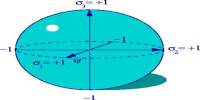The 2020 Nobel Prize in Physics has awarded to Roger Penrose, Reinhard Genzel, and Andrea Gage for their significant and observational work on black holes. Half of the 100 million kroner (about $1.12 million) prize awarded to Penrose for “discovering the formation of a black hole as a strong prediction of the general theory of relativity”. The other half divided between Genzel and Gage, “to discover a supermassive compact object at the center of our galaxy.” Scientists and their teams discovered Sagittarius A supermassive black hole at the center of the Milky Way.
The work of Roger Penrose was crucial for our understanding of black holes. Einstein’s theory of general relativity provided mathematical tools to make something so dense that nothing, including light, could avoid it. However, Einstein did not believe that they existed. Penrose came up with a model that described how such an extreme object could create. His Revolution 1965 magazine now largely grounded.

Half of the prize is observational. Reinhard Genzel and Andrea Gage are both leaders in an astronomy group that has studied stars at the very center of the Milky Way for the past three decades. The orbits of these stars indicate the presence of an incredibly dense object; Mercury’s mass packs more than 4 million times in an object that fits comfortably into Mercury’s orbit. Both teams continue to observe the center of the galaxy, providing important tests for general relativity. They showed that gravitational redshift do occur and that they follow orbits that cannot explain by Newton’s law of gravitation.
When asked what a black hole is, Professor Gage answered openly about mysterious things that seem to create more questions as they read more, questions UCLA Professor Gage said, “We don’t know. It makes these things foreign objects that really represent a breakdown of our physical understanding, the laws of physics.” Professor Gage is the fourth woman to receive the Physics Prize out of more than 200 awards since the award began in 1901 (James is tied to male Nobel laureates and female Nobel laureates, if you score).
“I’m thrilled to receive the award,” Gage said. I took the responsibility of being the fourth woman to receive the award very seriously. I hope I can inspire other young women on the field. It is a field that gives a lot of pleasure and a lot can do if you are a fan of science.”
















